Search Results for: Dolphins
Skip to resultsCan’t find what you’re looking for? Visit our FAQ page.
455 results for: Dolphins
- Animals
In a first, orcas and dolphins seen possibly hunting together
New footage shows orcas and dolphins coordinating hunts, hinting at interspecies teamwork to track and catch salmon off British Columbia.
-
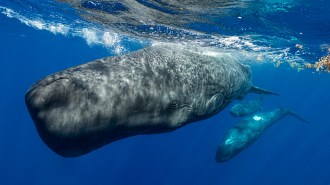 Animals
AnimalsAI eavesdropped on whale chatter. It may have helped find something new
Some “clicks” made by sperm whales may actually be “clacks,” but marine biologists debate what, if anything, that means.
-
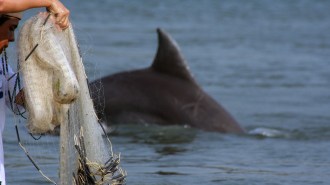 Animals
AnimalsDolphins and humans team up to catch fish in Brazil
In Brazil, where humans and dolphins fish in tandem, cooperation both within and between species is essential for the longstanding tradition.
-
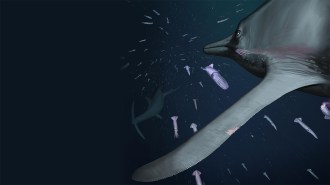 Paleontology
PaleontologyHow an ancient marine predator snuck up on its prey
Serrations at the edges of a fossilized flipper of the ancient marine reptile Temnodontosaurus suggests it may have been able to swim silently.
-
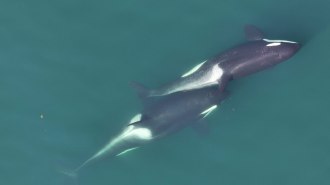 Animals
AnimalsKiller whales may use kelp brushes to slough off rough skin
The whales use quick body movements to tear pieces of bull kelp for use as tools, perhaps the first known toolmaking by a marine mammal.
-
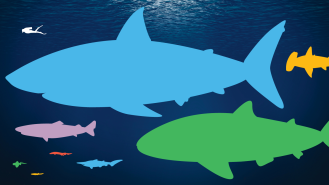 Animals
AnimalsCompare shark sizes on our infographic
As Jaws celebrates its 50th anniversary, Science News explores the vast range of shark sizes, from megaladon to the dwarf lanternshark.
-
 Health & Medicine
Health & MedicineBird flu in cows shows no signs of adapting to humans — yet
Easy replication in cattle mammary glands means H5N1 bird flu is under no evolutionary pressure to adapt to spread easily in humans.
-
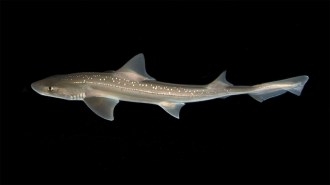 Animals
AnimalsIs that shark ticking? In a first, a shark is recorded making noise
The ocean can be a symphony of fish grunts, hums and growls. Now add tooth-clacking sharks to the score.
By Susan Milius -
 Animals
AnimalsDolphins’ open-mouth behaviors during play are like smiles, a study claims
Experts urge caution in calling bottlenosed dolphins’ gesture a humanlike “smile,” but agree it seems to be important for how the animals communicate.
-
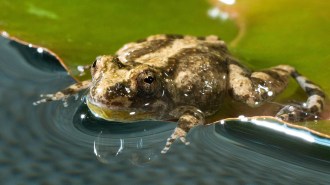 Animals
AnimalsCricket frogs belly flop their way across water
Cricket frogs were once thought to hop on the water’s surface. They actually leap in and out of the water in a form of locomotion called porpoising.
-
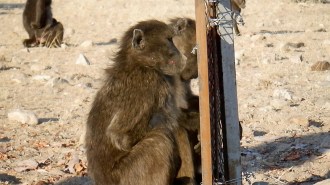 Animals
AnimalsWild baboons don’t recognize themselves in a mirror
In a lab test, chimps and orangutans can recognize their own reflection. But in the wild, baboons seemingly can’t do the same.
-
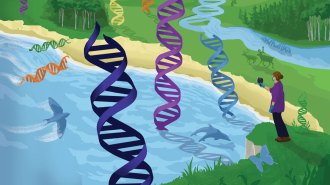 Animals
AnimalsStray DNA is all around us. It could revolutionize conservation
Environmental DNA harvested from the ocean, land and air can help scientists monitor wildlife. The challenge is figuring out how to interpret this eDNA.